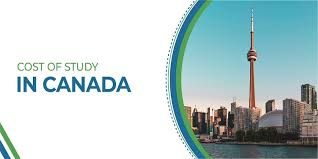Canada has become a sought-after destination for international students, offering world-class education, diverse programs, and a multicultural environment. However, understanding the cost of study in Canada is a vital step for prospective students aiming to balance their educational aspirations with financial planning. This comprehensive guide dives into the expenses associated with studying in Canada, helping students and their families prepare for this transformative journey.
Tuition Fees Across Different Programs
One of the most significant components of studying in Canada is tuition fees, which vary depending on the university, program, and level of study.
- Undergraduate Programs: Tuition for undergraduate degrees typically ranges from CAD 15,000 to CAD 30,000 per year. Programs in arts and humanities tend to be more affordable, while fields like engineering, medicine, and business command higher fees.
- Postgraduate Programs: Master’s programs range from CAD 18,000 to CAD 35,000 annually. MBAs and specialized courses may cost significantly more, with fees ranging from CAD 30,000 to CAD 50,000 per year.
- Diplomas and Certificates: For students looking for shorter courses, diplomas and certificates range from CAD 10,000 to CAD 20,000 annually, depending on the institution.
Cost of Living in Canada
Apart from tuition fees, living expenses constitute a significant part of the cost of study in Canada. These include accommodation, transportation, food, and other miscellaneous costs.
- Accommodation: Students can choose from on-campus residences (CAD 6,000–10,000 per year) or off-campus options like shared apartments (CAD 700–1,500 per month).
- Transportation: Public transit is widely used in cities like Toronto, Vancouver, and Montreal. Monthly transit passes cost around CAD 80–120.
- Food and Groceries: Monthly food expenses typically range from CAD 300 to CAD 500. Cooking at home is a cost-effective option compared to dining out.
- Health Insurance: International students must have health insurance, which costs around CAD 600–900 annually, depending on the province.
- Miscellaneous Expenses: Entertainment, clothing, and other personal expenses can add up to around CAD 1,000–2,000 annually.
Scholarships and Financial Aid
Many international students reduce the financial burden by securing scholarships, grants, and other forms of financial aid.
- Merit-Based Scholarships: Offered by universities based on academic achievements. Examples include the University of Toronto International Scholar Award and UBC International Leader of Tomorrow Award.
- Need-Based Grants: Some institutions provide financial assistance based on a student’s financial situation.
- External Scholarships: Organizations like Vanier Canada Graduate Scholarships and Commonwealth Scholarships provide funding for international students.
Part-Time Work Opportunities
To help manage expenses, students in Canada can work part-time during their studies. International students with a valid study permit can work up to 20 hours per week during academic sessions and full-time during scheduled breaks. Popular on-campus and off-campus roles include teaching assistants, retail jobs, and internships.
The Appeal of Study Abroad in Canada
For students aiming to study abroad, Canada offers an ideal mix of academic excellence and cultural diversity. The country’s welcoming nature, emphasis on inclusivity, and high quality of life make it a top choice. Beyond the classroom, students experience vibrant cities, stunning natural landscapes, and opportunities to build a global network.
Moreover, studying in Canada often serves as a gateway to future residency or employment, thanks to programs like the Post-Graduation Work Permit (PGWP) and Express Entry pathways.
FAQs About the Cost of Study in Canada
Q) What are the cheapest universities in Canada for international students?
A) Some universities with affordable tuition fees include Memorial University of Newfoundland, University of Regina, and Brandon University.
Q) Can I work while studying in Canada?
A) Yes, international students can work part-time on or off-campus with a valid study permit. They can also work full-time during scheduled breaks.
Q) Is health insurance mandatory for international students?
A) Yes, health insurance is mandatory. Provinces like British Columbia and Alberta offer provincial health coverage, while others require private insurance.
A) How much should I budget for living expenses in Canada?
A) Living expenses vary by city but typically range from CAD 10,000 to CAD 15,000 annually. This includes accommodation, food, transportation, and other costs.
Q) Are scholarships available for international students?
A) Yes, many Canadian universities and external organizations offer scholarships for international students based on merit, need, or other criteria.
Q) What is the average cost of postgraduate programs in Canada?
A) Postgraduate programs usually cost between CAD 18,000 and CAD 35,000 annually, depending on the course and university.
Q) Can I apply for a student loan to study in Canada?
A) While Canadian student loans are generally available for citizens and permanent residents, international students can explore private loans or sponsorship options.
Conclusion
Planning for the cost of study in Canada ensures a smooth and rewarding academic journey. From tuition fees to living expenses, understanding the financial landscape helps students make informed decisions. For those navigating this path, an Overseas education consultancy provides invaluable support, simplifying applications, securing scholarships, and ensuring a seamless transition into Canadian academia.



No comments:
Post a Comment